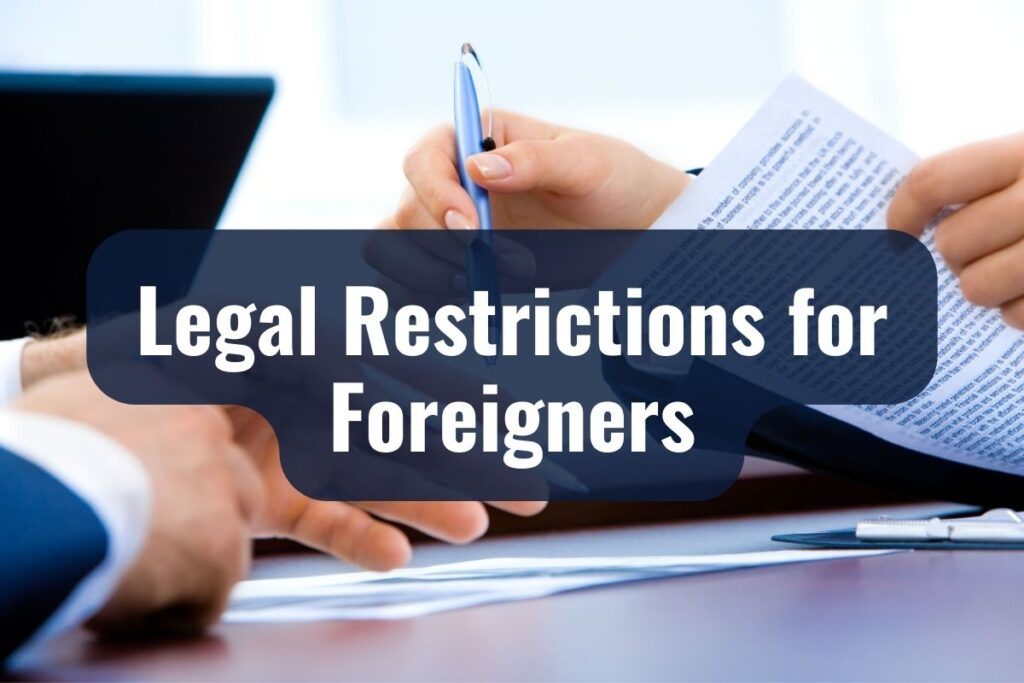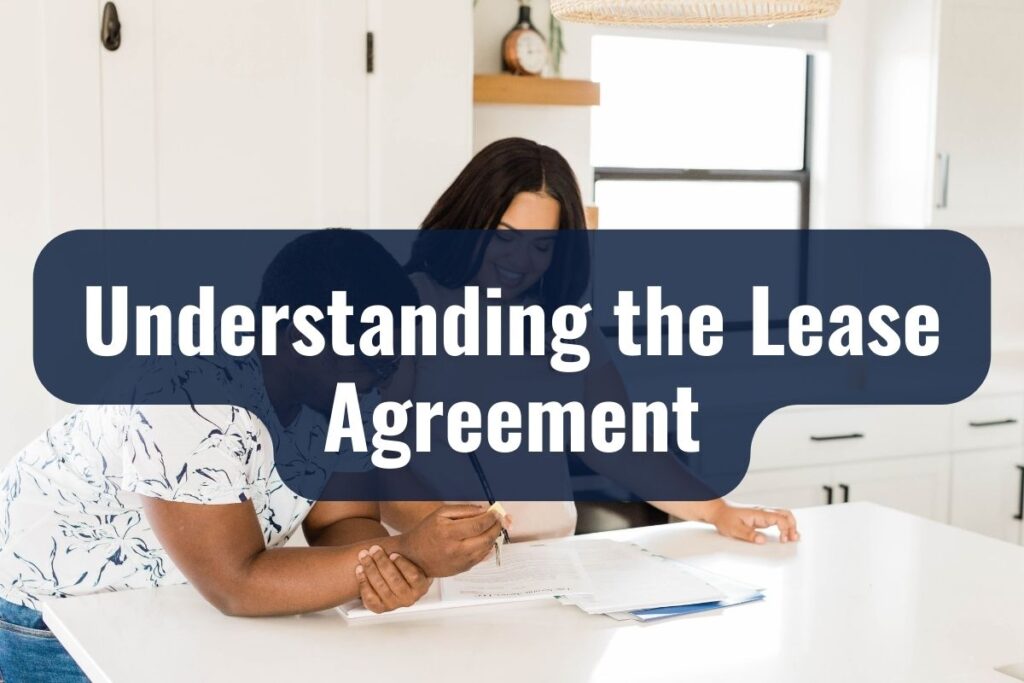Whether it’s the allure of Bangkok’s skyscrapers, the serene beaches of Phuket, or the cultural heart of Chiang Mai, the country offers a diverse range of living experiences. Consequently, the housing market in Thailand has evolved to cater to this diverse group of residents, presenting a myriad of options from modern condominiums to traditional Thai houses.
This article aims to provide a comprehensive guide to housing in Thailand, ensuring that foreigners can make informed decisions and enjoy a comfortable and hassle-free stay in this beautiful country.
KEY TAKEAWAYS
- Thailand offers diverse housing options, from condos to traditional homes.
- Foreigners face specific legal restrictions, especially regarding land ownership.
- Location, safety, and accessibility are vital factors when choosing a place.
- Understanding all associated costs ensures a stress-free living experience.
- Thoroughly understanding lease agreements prevents potential pitfalls.
- Respecting Thai customs fosters harmonious relationships with locals.
Importance of Understanding the Nuances for Foreigners
For a foreigner, navigating the Thai housing market can be both exciting and daunting. The country’s unique blend of tradition and modernity is reflected in its real estate offerings. However, beyond the aesthetics and amenities, there are legal, cultural, and practical aspects that every foreign resident should be aware of.
Types of Housing Options Available
| Housing Type | Description |
| Apartments | Rental units in multi-story buildings, typically owned by a single entity. |
| Condominiums | Individual units in a building, owned by separate individuals; often with shared amenities. |
| Houses and Villas | Standalone structures, ranging from suburban homes to luxurious beachfront properties. |
| Townhouses | Multi-story residences sharing walls with neighboring units; suitable for families or shared living. |
| Serviced Apartments | Fully furnished units with hotel-like amenities; ideal for short-term stays. |
Apartments and Condominiums
One of the most popular housing options for foreigners in Thailand is apartments and condominiums. These are typically multi-story buildings that house multiple individual units. While both terms are often used interchangeably by many, there’s a distinction:
Apartments: These are rental units where the entire building is usually owned by a single entity. Renters pay their monthly dues to this entity or property manager. Amenities might be basic, and the rental agreement might include utilities.
Condominiums: Condos are individual units within a building that are owned by separate individuals. When foreigners talk about “buying property” in Thailand, they’re often referring to condos, given the legal ease of ownership compared to land or houses. Condominiums often come with shared amenities like swimming pools, gyms, and security services.
Houses and Villas
For those looking for more space or privacy, standalone houses or villas are an option. These can range from modest single-story homes in suburban areas to luxurious beachfront villas in tourist hotspots. While they offer more space and often a garden or yard, foreigners should be aware of the legal restrictions associated with owning land in Thailand.
Townhouses
A middle ground between apartments and standalone houses, townhouses are multi-story residences that share one or two walls with neighboring units. They offer more space than typical apartments and often come with multiple bedrooms, making them suitable for families or shared living.
Serviced Apartments
Ideal for short-term stays or for those who prefer the conveniences of hotel-like amenities, serviced apartments are fully furnished units that come with services like housekeeping, laundry, and sometimes even meal options. They are often located in city centers or business districts, providing easy access to major attractions and amenities.
Legal Restrictions for Foreigners

Navigating the legal landscape of housing in Thailand can be intricate, especially for foreigners. While the country is welcoming and offers a plethora of housing options, there are specific legal restrictions that foreigners should be aware of to ensure a smooth and hassle-free experience.
Land Ownership Laws: Why Foreigners Can’t Directly Own Land
In Thailand, foreign individuals are not allowed to own land outright. This law is rooted in the country’s desire to preserve its land for Thai nationals. However, there are certain workarounds that foreigners often use:
Company Ownership: Some foreigners set up a Thai limited company to purchase land. The company, although majority-owned by Thai nationals on paper, can be controlled by foreigners through various legal mechanisms. It’s essential to consult with a local attorney if considering this route, as there are specific legal requirements and implications.
Leasehold: Another common method is to lease land. Foreigners can enter into a lease agreement for up to 30 years, and these can often be renewed. While this doesn’t grant ownership, it allows for long-term use and can be a practical solution for many.
Condominium Ownership: The 49% Rule
When it comes to condominiums, the laws are more lenient. Foreigners are allowed to own condominium units but with a caveat.
In any given condominium project, only 49% of the total sellable floor space can be owned by foreigners. The remaining 51% must be owned by Thai nationals. This is commonly referred to as the “49% rule.” When purchasing a condo, it’s crucial to ensure that the specific project hasn’t already reached this foreign ownership quota.
Leasehold Properties: A Viable Alternative
As mentioned earlier, leasehold is a popular alternative to outright ownership. Apart from land, foreigners can also opt for leasehold agreements for houses, villas, or even condominiums.
These agreements grant the lessee the right to use the property for a specified period, usually up to 30 years, with potential renewal options. It’s a way to enjoy the benefits of a property without the complexities of ownership.
Factors to Consider When Choosing a Place
Finding the perfect home in Thailand involves more than just selecting a property type or navigating legal restrictions. It’s about identifying a place that aligns with your lifestyle, needs, and preferences. Here are some crucial factors that foreigners should consider when choosing a place to live in Thailand.
Proximity to Amenities
Depending on your daily routine and preferences, being close to essential amenities can significantly enhance your living experience.
Hospitals: In case of medical emergencies or regular check-ups, having a reputable hospital nearby is always beneficial.
Schools: For those with children, proximity to international schools or kindergartens can be a deciding factor.
Shopping Centers: Regular grocery runs or occasional shopping sprees are more convenient when there’s a mall or market close by.
Safety and Security
Thailand is generally a safe country, but like anywhere else, some areas are safer than others. Researching the safety record of a neighborhood, checking for 24/7 security services in condominiums, or even just the presence of a local police station can provide added peace of mind.
Cultural and Local Neighborhood Considerations
Understanding and integrating into the local culture can make your stay more enjoyable. Some neighborhoods might be more traditional, while others could be cosmopolitan.
Local Markets and Temples
These can offer a glimpse into the daily lives of Thais and provide opportunities to immerse oneself in the culture.
Expat Communities
Some areas, especially in cities like Bangkok or Chiang Mai, have significant expat populations, which can be comforting for those looking for familiar faces or international amenities.
Accessibility to Public Transport
Especially in bustling cities like Bangkok, where traffic can be challenging, being close to public transport options such as the BTS (Skytrain) or MRT (Metro) can be a game-changer. It not only saves time but also offers a cost-effective way to explore the city.
Costs Associated with Housing

When considering housing in Thailand, understanding the associated costs is crucial. While Thailand is often perceived as an affordable destination, expenses can vary significantly based on location, type of housing, and individual preferences. Here’s a breakdown of the primary costs foreigners should anticipate when seeking housing in Thailand.
Rent or Purchase Price
The most significant expense, whether you’re renting or buying, is the cost of the property itself.
Rent: Prices can vary widely based on location, size, and amenities. For instance, a condo in central Bangkok will typically be more expensive than a similar-sized one in Chiang Mai or a more suburban area of Bangkok.
Purchase: If buying a condominium or entering a leasehold agreement for land or a house, the upfront cost will be substantial. It’s essential to compare prices in different areas and negotiate to get the best deal.
Utility Bills: Electricity, Water, and Internet
Monthly utility bills are a recurring expense to factor in.
Electricity: Costs can fluctuate based on usage. Air conditioning, which is almost a necessity in Thailand’s tropical climate, can significantly impact electricity bills.
Water: Generally, water bills in Thailand are affordable, but it’s still essential to monitor usage, especially if you have a garden or a pool.
Internet: Depending on the package and speed you choose, internet costs can vary. Most urban areas offer high-speed internet, but it’s good to check connectivity if you’re considering a more remote location.
Maintenance Fees for Condominiums
If you’re living in a condominium, there’s often a monthly maintenance fee. This fee covers the upkeep of shared amenities like swimming pools, gyms, and security services. The cost usually depends on the size of your unit and the luxury level of the condominium.
Property Taxes and Insurance
For those purchasing property:
Property Taxes: These are relatively low in Thailand compared to many Western countries. However, they still need to be factored into annual expenses.
Insurance: Protecting your investment with property insurance is advisable. Rates will depend on the property’s value and the coverage level you opt for.
Finding a Place: Tips and Resources
Searching for the perfect home in Thailand can be both exhilarating and challenging. With a myriad of options and considerations, having a structured approach and the right resources can make the process smoother. Here are some tips and resources to aid foreigners in their housing quest in Thailand.
Using Reputable Real Estate Agents
Real estate agents can be invaluable in your search. They not only have access to extensive property listings but also understand the local market dynamics and legal intricacies.
Local Knowledge: Agents can provide insights into neighborhoods, expected prices, and even cultural nuances.
Negotiation: A good agent can help negotiate prices, ensuring you get value for your money.
Legal Assistance: They can guide you through the paperwork, ensuring all legal aspects are correctly handled.
When choosing an agent, it’s essential to opt for reputable ones, preferably those recommended by friends, colleagues, or online expat communities.
Online Platforms Popular Among Foreigners
Several online platforms cater specifically to the housing needs of foreigners in Thailand. These platforms provide listings, photos, and often even virtual tours.
DDProperty: A leading real estate website in Thailand, it offers extensive listings and is user-friendly.
Hipflat: Another popular platform, it provides listings with an emphasis on condos in major cities.
Thailand-Property: Catering mainly to foreigners, this site offers both rental and purchase options across the country.
Importance of Visiting in Person Before Finalizing
While online listings and photos provide a glimpse, there’s no substitute for visiting a property in person.
Feel of the Place: Being on-site allows you to get a genuine feel of the space, the neighborhood, and the amenities.
Inspection: It’s an opportunity to check for any issues or repairs needed, ensuring there are no surprises after moving in.
Negotiating Rent or Purchase Price
Negotiation is a standard practice in the Thai real estate market.
Research: Before negotiating, research typical prices in the area to have a benchmark.
Flexibility: Sometimes, landlords or sellers might be more willing to negotiate on terms or added amenities rather than just the price.
Local Help: If you’re not comfortable with negotiating, having a local friend or your real estate agent assist can be beneficial.
Understanding the Lease Agreement

Entering into a lease agreement in Thailand, as in many countries, is a binding legal commitment. For foreigners, it’s crucial to understand the terms and conditions of this agreement to avoid potential pitfalls and ensure a harmonious rental experience. Here’s a guide to some of the essential elements of a Thai lease agreement and what to look out for.
Common Terms and Conditions
While each lease agreement can vary, there are standard terms and conditions you’re likely to encounter:
Duration: This specifies the length of the lease. Most residential leases in Thailand are for one year, but shorter or longer terms can be negotiated.
Rent: The monthly rent amount, the due date, and the method of payment will be detailed. Ensure clarity on any additional charges or fees.
Security Deposit: It’s standard practice in Thailand to pay a security deposit, usually equivalent to one or two months’ rent. This deposit is returned at the end of the lease, minus any deductions for repairs or unpaid bills.
Deposits and Advance Payments
Understanding the financial commitments upfront is vital:
Advance Rent: Some landlords might require the first month’s rent in advance.
Utility Deposits: In some cases, there might be additional deposits for utilities like electricity and water.
Responsibilities of the Tenant and Landlord
The lease should clearly outline the responsibilities of both parties:
Maintenance and Repairs: Typically, minor repairs and regular maintenance are the tenant’s responsibility, while significant repairs fall on the landlord. However, this can vary, so it’s essential to have clarity.
Utilities: The lease should specify who pays for utilities. In most cases, tenants handle these payments directly.
Termination and Renewal Clauses
Understanding the conditions under which the lease can be terminated or renewed is crucial.
Notice Period: Most agreements require a notice period (e.g., 30 days) if either party wishes to terminate the lease before its end date.
Penalties: There might be penalties for early termination. Ensure you’re aware of these conditions.
Renewal: Some leases might have an automatic renewal clause, while others might require a new agreement. It’s good to know the process in advance.
Cultural Etiquette and Building Relationships
Living in Thailand offers foreigners a unique opportunity to immerse themselves in a rich and diverse culture. While the country is known for its warm hospitality, understanding and respecting local customs, especially in a housing context, can significantly enhance one’s experience and foster harmonious relationships with neighbors and landlords.
Respecting Thai Customs in Housing Communities
Thailand is deeply rooted in traditions and customs, and being aware of these can help in building rapport:
Shoes Off Indoors
It’s customary to remove shoes before entering a home. This practice is not just about cleanliness but also shows respect to the house’s inhabitants.
Quiet Hours
Thais value peace and quiet, especially in the evenings. Being mindful of noise levels, especially in apartment complexes or densely populated areas, is appreciated.
Religious Observances
Many Thais have a small shrine or spirit house on their property where they make daily offerings. Respecting these spaces and any associated rituals is essential.
Building Rapport with Neighbors and Landlords
Building good relationships with those around you can make your stay more enjoyable:
Greetings: A simple “Sawasdee” (hello) with a smile can go a long way in building rapport with neighbors.
Participation: Engaging in local events, festivals, or community gatherings can help in understanding the culture and forging connections.
Open Communication: If you’re planning to host a gathering or make changes to the property, informing your landlord or neighbors in advance is a gesture of respect.
Participating in Local Events and Gatherings
Integration into the community can be accelerated by participating in local events:
Festivals: Thailand is home to numerous festivals, from Songkran (the water festival) to Loy Krathong (the lantern festival). Participating or even just observing these can provide insights into Thai culture.
Community Activities: Many neighborhoods or housing communities organize events, clean-up days, or other communal activities. Joining these can be a great way to meet neighbors and contribute to the community.
Challenges and Solutions

While living in Thailand offers a myriad of experiences and opportunities, foreigners might face certain challenges in the housing realm. Recognizing these challenges and being equipped with solutions can ensure a smoother and more enjoyable stay.
Language Barriers and How to Overcome Them
One of the primary challenges is the language barrier. While many Thais in urban areas speak English, it might not be the case in more remote or traditional neighborhoods.
Consider taking basic Thai language courses. Even a few phrases can make daily interactions easier and more meaningful.
Modern translation apps can be handy for on-the-spot translations, especially during discussions with landlords or service providers.
Dealing with Repairs and Maintenance
Understanding how to handle repairs, especially if there’s a language barrier or unfamiliarity with local services.
Neighbors or local friends can often recommend reliable service providers or handymen.
In many cases, the landlord might have preferred or contracted service providers. Establishing clear communication channels with the landlord can expedite repairs.
Handling Disputes Amicably
Like anywhere, disputes can arise, be it over utility bills, property damages, or other issues.
Before escalating any issue, try to have an open conversation with the concerned party. Many disputes can be resolved through understanding and compromise.
If a resolution seems challenging, consider mediation. Local community leaders or even respected neighbors can often help in finding a middle ground.
Thailand, with its captivating blend of ancient traditions and modern vibrancy, offers a unique living experience for foreigners. From the bustling streets of Bangkok to the serene beaches of the southern islands, the country presents a tapestry of experiences waiting to be explored.
Choosing a home is more than just finding a place to rest your head; it’s about creating a space where memories are forged, relationships are built, and daily life unfolds. While the journey of finding and settling into a home in Thailand comes with its set of challenges, it also brings with it unparalleled opportunities to immerse oneself in a new culture, form lasting bonds, and create a life filled with diverse experiences.
Embracing the Thai way of life, respecting its customs, and integrating into the community can make the transition not just smoother but also deeply rewarding. As with any adventure, the journey is as significant as the destination. And in the case of Thailand, the journey of finding and making a home is one filled with discovery, growth, and countless moments of joy.


